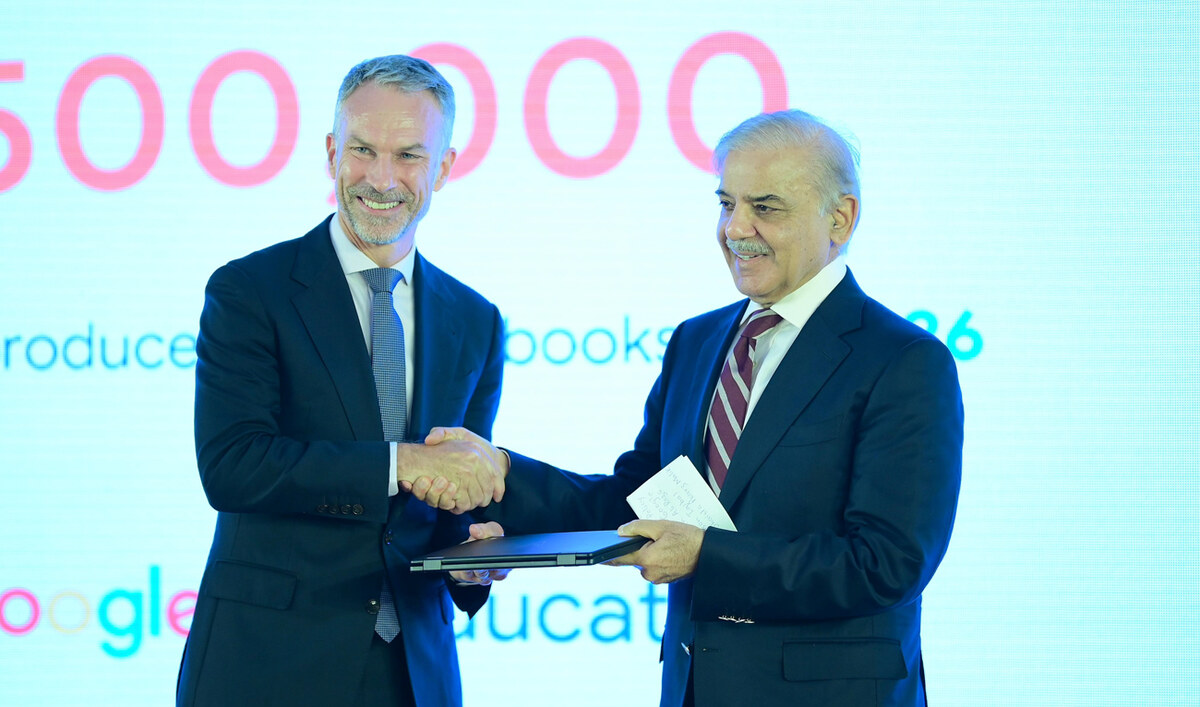ISLAMABAD: Pakistani Prime Minister Shehbaz Sharif said on Thursday tech giant Google had decided to increase its investments in Pakistan and support youth skill training initiatives in the South Asian nation.
A four-member Google delegation led by the company’s president for the Asia Pacific region, Scott Beaumont, called on Sharif on Thursday in Islamabad.
At a ceremony earlier in the day, Sharif had announced. an IT export target of $25 billion in the next five years, saying the government would allocate funds for training of the youth and improvement in IT infrastructure and the regulatory environment.
“Apprising the prime minister of its plans of future engagement, Mr. Scott said Google has decided to further increase its investment footprint in Pakistan and support the Government’s initiatives of Youth’s skills training,” Pakistani news agency APP reported.
“In order to maximize the economic benefits of technology, the large youth population and expanding economy are important factors for a value-driven tech giant like Google, he added.”

Pakistan Prime Minister Shehbaz Sharif (R) receives Chromebook by Google’s president for the Asia Pacific region, Scott Beaumont (L), during a launch event of an initiative to manufacture 500,000 Chromebooks in Pakistan, in Islamabad on September 5, 2024. (Photo courtesy: PMO)
At a ceremony on Thursday, Google launched an initiative to produce half a million Chromebooks in Pakistan by 2026, marking the occasion by presenting the first locally manufactured device to Sharif.
“The target is simple and we have to touch the figure of $25 billion in the next five years,” PM Sharif said on Thursday while addressing the ceremony. “Give me a pathway on how to achieve this figure.”
Pakistan is banking on its nascent but growing IT industry to increase its exports and generate critical foreign exchange revenue for a cash-strapped country. IT exports soared to $3.2 billion in the fiscal year 2023-2024, marking a robust 24 percent year-on-year increase from the previous fiscal’s $2.59 billion.
But the push to boost the sector is facing challenges as Internet speeds in Pakistan have dropped by 30-40 percent over the past few weeks, affecting millions of Pakistanis, adversely hitting businesses and drawing nationwide complaints.
The telecommunications authority has attributed the slowdown to damaged underwater cables while IT Minister Shaza Khawaja has blamed a surge in VPN use, but digital advocacy groups and IT unions say the Internet slowdown may be linked to the government’s trial of an upgraded web management system or national firewall to control what it deems “anti-state propoganda.” The government says any firewall, if imposed, will not be used for censorship purposes.
Last month, the Pakistan Software Houses Association (P@SHA) said Pakistan’s economy could lose up to $300 million due to Internet disruptions caused by the imposition of a national firewall.

















